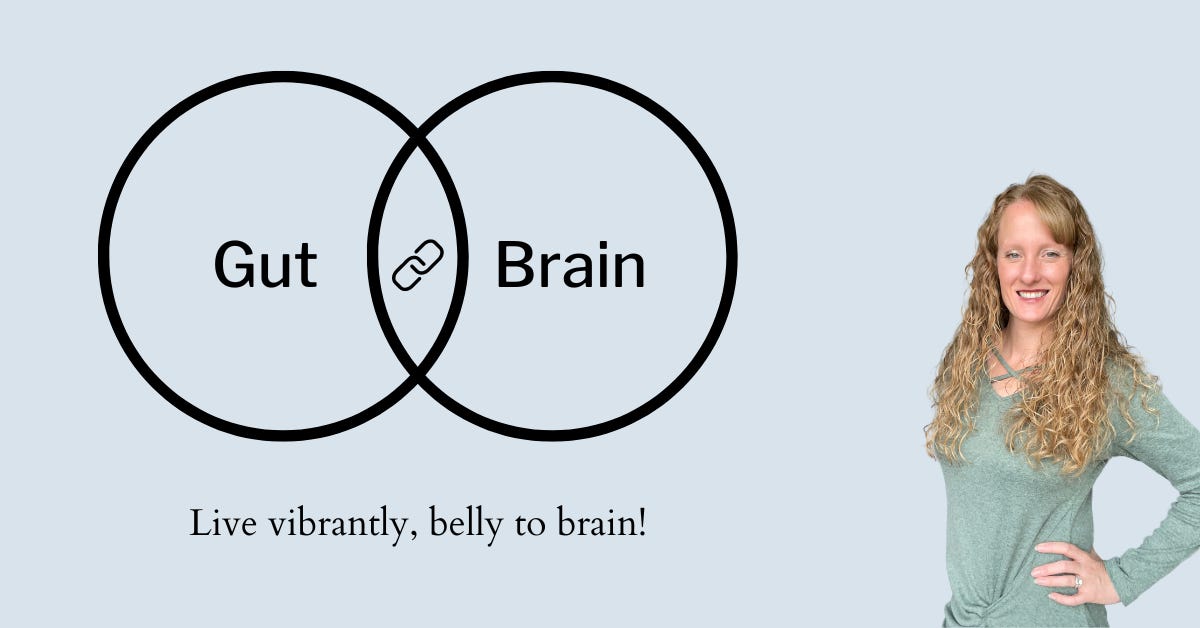Have you ever had a "gut feeling" about something or felt "butterflies" in your stomach when you're nervous? As it turns out, these phrases aren't just metaphors. The gut and brain are connected in more ways than we ever thought possible.
During early embryonic development, the gut and brain develop from the same tissue line, and they continue to work together throughout our lives. The gut has its own nervous system, called the enteric nervous system, which contains over 100 million nerve cells. This system communicates directly with the brain through the vagus nerve, which runs from the brainstem to the abdomen. What we eat and how we digest it can directly affect our mental and emotional health, and our mental and emotional health can impact how well we digest and absorb nutrients.
Studies have shown that people who suffer from depression, anxiety, brain fog, and inability to concentrate often have digestive symptoms such as bloating, gas, constipation, diarrhea, and irritable bowel. The gut microbiome, a collection of trillions of microorganisms that live in our intestines, produces many of the same neurotransmitters as the brain, including serotonin, dopamine, and GABA. These neurotransmitters play a key role in regulating our mood, emotions, and cognitive function.
The gut-brain connection is a two-way street, and what affects one can affect the other. Many people who suffer from irritable bowel syndrome (IBS) or other digestive disorders also experience cognitive decline, memory loss, and other neurological symptoms. Inflammation and damage to the intestinal lining, poor energy utilization, slowed metabolism, increased belly fat and overall body fat storage, cognitive decline, and impaired brain function are some of the issues that can result from chronic stress.
One key player in the gut-brain connection is the hypothalamic-pituitary-adrenal (HPA) axis, a complex system that regulates our body's response to stress (essentially how our brain and body communicate). When we experience stress, our HPA axis is activated - causing a chain reaction of chemical messengers and hormones to be released, helping us to fight or flee from the stressor. Once the stressor has been handled, the levels chemical messengers can return to normal.
The problem comes in when the stress isn’t temporary (like a tiger attack), but is chronic, unrelenting stress every day (like work, relationships, underlying infections, and injuries). Chronic stress causes an increase in cortisol, adrenaline, blood pressure, heart rate, and blood sugar, and a decrease in bodily functions like digestion that aren’t essential to life during an emergency. All of this can lead to inflammation, damage to the intestinal lining, poor energy utilization, slowed metabolism, increased belly fat and overall body fat storage, cognitive decline, impaired brain function, and more.
To support the gut-brain connection, it's important to manage stress. A healthy gut microbiome can help regulate the HPA axis and reduce the negative effects of stress on our body and mind. A healthy, whole-foods-based diet that avoids processed foods, sugar, and artificial ingredients and focuses on foods that nourish your body and your gut microbiome is also essential. Quality protein sources, fresh non-starchy vegetables, healthy fats, and fermented foods are all great choices.
Other lifestyle factors like stress management, regular exercise, and good sleep hygiene are also important for supporting the gut-brain connection. In some cases, natural supplements like probiotics, digestive enzymes, and herbs can support gut health, although they should be tailored to your gut's unique needs.
If you're struggling with mental or physical health challenges and suspect that your gut health may be a contributing factor, it's essential to look deeper into this connection. A qualified Holistic Health Practitioner, like myself, can help you develop a personalized plan for improving your gut-brain connection. Remember, even small changes can make a big difference in your overall health and well-being.
Live well and be vibrant!
To learn more about how I can help you take control over your health and finally solve your health challenges, click the button below.



